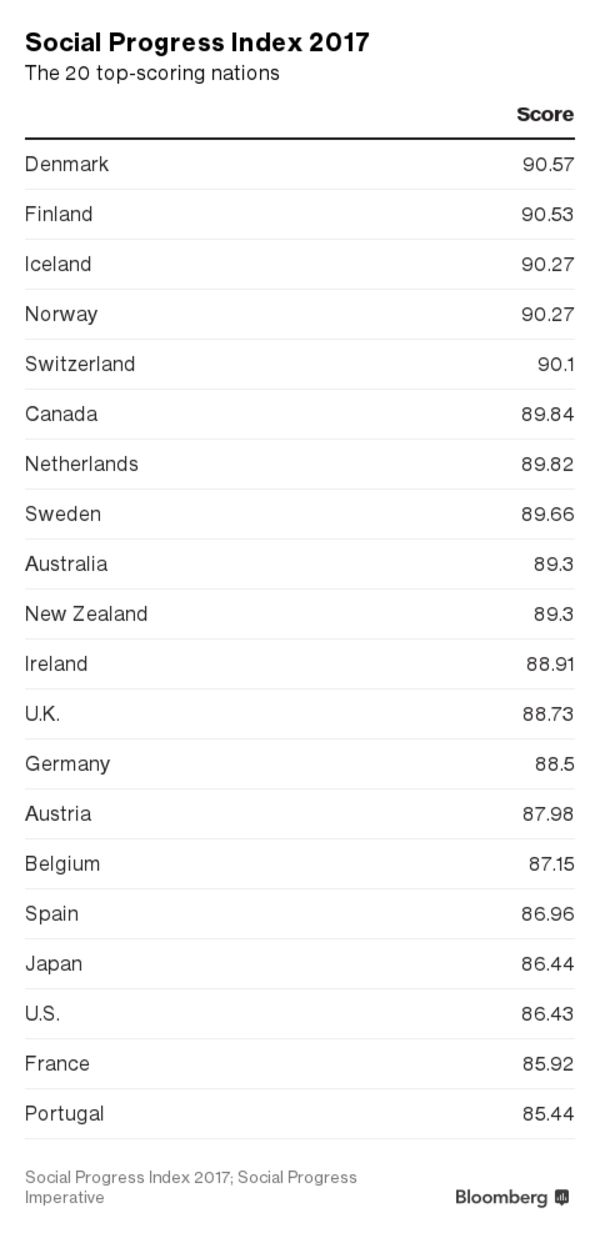
While much of northern Europe continues to provide affordable
healthcare, promote equality, and minimize poverty rates, across the
Atlantic the US is getting more divided and less tolerant. Compared to other countries with similar GDP, the US is lagging in its homicide rates, terrorism, and its traffic deaths. (Business Insider)
Hungary and Nicaragua are among nine countries that have shown the biggest declines in overall social progress, the study found, and are doing worse since the index was first done in 2014. The SPI team notes that achieving positive change is harder for the wealthier, top-ranked countries. Small improvements in low- or middle-income countries can produce large gains in the SPI ranking. Many of the world’s wealthiest countries, including the U.S., China, France and Russia, are barely improving in the index.
Source: Social Progress Imperative



No comments:
Post a Comment